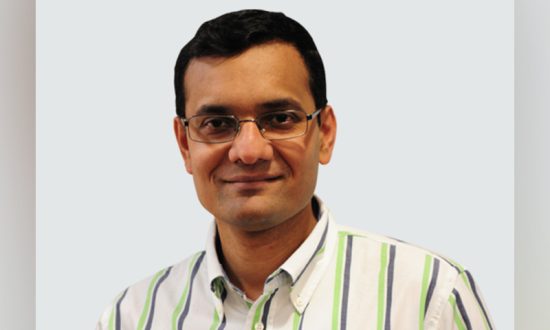In his role as the Managing Director, India, Narasimha is responsible for driving the India business for Brainly and to build world-class EdTech products for the Indian market. He has a rich professional experience of 20+ years, working with both established and emerging companies in business management roles. Before Brainly, he was CEO of Aakash Edutech, the digital subsidiary of Aakash Education Services Limited, India’s # 1 test preparation company based out of Gurgaon. Narasimha holds a B. Tech (Computer Engineering) NIT, Surathkal, PGDM (IIM-Bangalore) and an MBA from the London Business School.
Technology has the potential to unlock the actual potential of students in tier 2 and 3 cities as well as metropolitan cities. As a result of the growth of innovative and successful ed-tech platforms, students can gain access to quality education and fuel their learning goals.
Indian ed-tech apps stepped up during the COVID-19 pandemic when the government shut down educational institutes. While students in metros adapted quickly to online ed-tech platforms, rural students and students from Tier-2 and Tier-3 cities could not access basic education. Thankfully ed-tech came to the rescue.
Today, educational technology is used in K-12, higher education, and vocational training. Online learning platforms are also persuading teachers and parents to include ed-tech products and services in the total learning system of students. These platforms are filling the void in smaller Indian towns and cities, which need creative solutions to the challenges of contemporary education.
Parents in smaller cities want quality education for their children and see the clear benefits of online education. Online learning platforms can ensure that quality of learning and delivery standards are on par with or are better than in the major cities.
For students from smaller towns and rural areas who may not have access to transportation, online coaching provides time and space flexibility. Technological advancements have enabled these students to attend lectures, clear their doubts, and learn from the comfort of their own homes.
One thing that technology is naturally adept at is in lowering prices and assuring affordability. While people in big cities have the resources to analyze and purchase more expensive options, people in tier 2 and 3 cities have been waiting for affordable quality content/services offered via cheap internet.
In a country like ours, with all the benefits of a large and young population eager to learn and become productive, as well as all the drawbacks of low overall school quality – almost nonexistent child development facilities, sports, vocational, and continuing education delivery mechanisms – rapidly expanding the ed-tech footprint is the only feasible way to develop as quickly as possible.
These are some reasons why parents in tier 2, 3 areas and beyond are choosing online learning to realize the dream of quality education which is also personalized for individual needs, including being available in their preferred language.
The finest learning occurs when communication is smooth. Language is an important component of efficient communication. As a result, learning occurs efficiently when the user can learn in their preferred language. Language and learning are inextricably intertwined, and students must get an opportunity to study in the language they know best.
Brainly provides the world’s most extensive Knowledge Base for all school grades and subjects. In India it is available in Hindi, Marathi, Telugu, Tamil, Gujarati, Kannada, Bengali, and Sanskrit. The company understands the importance of the local language and is expanding Brainly’s Knowledge Base in more Indian languages, to make education accessible to more students across India.
Through innovation and scalable technology, online learning platforms in India are producing effective solutions and functioning as vehicles for socioeconomic development and transformation. Digitalization, or the use of technology in education, has facilitated the spread of high-quality education across the country, notably in Tier 2 and Tier 3 cities.
Ed-tech platforms have been developing solutions that are both user-friendly and cost-effective, with the potential to raise educational standards in tier 2 and 3 cities. These solutions are well-suited to India’s linguistic diversity and offer excellent value to the end-user.
The adoption of technology in the education sector was somewhat forced by the Covid-19 pandemic. However, for the education sector in the smaller towns and rural areas, it came as a blessing in disguise. What came as a forced change triggered the transformation of the entire education sector in these cities. The dependence on big cities for good quality education is rapidly declining. Due to the initiatives by the government, advancements in AI, machine learning and other technologies, and efforts from the industry, very soon, we can expect uniformity in the quality of education across the nation.




